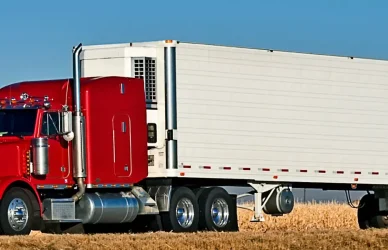For many military veterans transitioning into civilian life starting a truck driving career can be incredibly rewarding in many ways. To begin, the average starting salary for a truck driver can significantly outpace that of the average active-duty private, and even those of sergeants who have 8 years in the armed forces. More than 10% of veterans have chosen this career path as their next step after military service, and for good reason.
There are many great opportunities for veterans in the truck driving industry, so if you’ve served your country proudly, and now find yourself looking for the next step, here are a few tips to make the transition from active-duty military to a career in truck driving a bit easier.
Take Advantage of Veteran-friendly Programs. Many trucking companies offer special programs designed specifically for veterans. These programs can help you with job placement and other considerations as you make your transition into the industry.
Set Realistic Expectations. Truck driving is not always an easy job, and it may take some time before you feel comfortable behind the wheel. Spend some time researching what life as a professional truck driver really entails so you’re better prepared to make your move into the industry.
Apply Your GI Bill to Professional Training. Truck drivers need to know how to handle their rigs safely and efficiently on the roads, so consider investing in quality training if you want to succeed in this field. Look for programs offered by accredited schools or those endorsed by major organizations like the American Trucking Association (ATA). The U.S. Department of Veteran Affairs (VA) has a searchable platform to help you find a reputable school whose tuition costs can be covered by your GI bill. If you wish to apply your GI bill to the tuition, be sure to check with the VA to ensure the enrollment at your school of choice will be fully covered.
Seek Out Mentorships and Resources. Having experienced mentors makes a huge difference when entering a new profession. Reach out to drivers who have experience in the industry and ask them about their career, they’ll likely have a wealth of knowledge that can help your transition go smoother. Furthermore, there are plenty of resources available online and through associations like Women In Trucking that can provide guidance and advice on getting started behind the wheel. You may also want to consider starting out as a team driver to help with the transition of one day working alone. While former military personnel generally do well driving solo, there are some who have become accustomed to working with their unit and find the transition easier when starting out with another driver.
Don’t Be Afraid to Ask for Help Along the Way. Even the most experienced drivers face challenges during their careers. Don’t be afraid to seek out support when needed—whether it’s help with certain technical skills, career advice, transitioning to civilian life, or just someone who will give you a morale boost when times get tough out on the road. With the right support system around you, your journey into this fulfilling career will be much smoother!
Transitioning from active duty to civilian life can be daunting—but it doesn’t have to be scary. If you’re a veteran considering a truck driving career, we hope this post has given you some helpful tips to get started!











